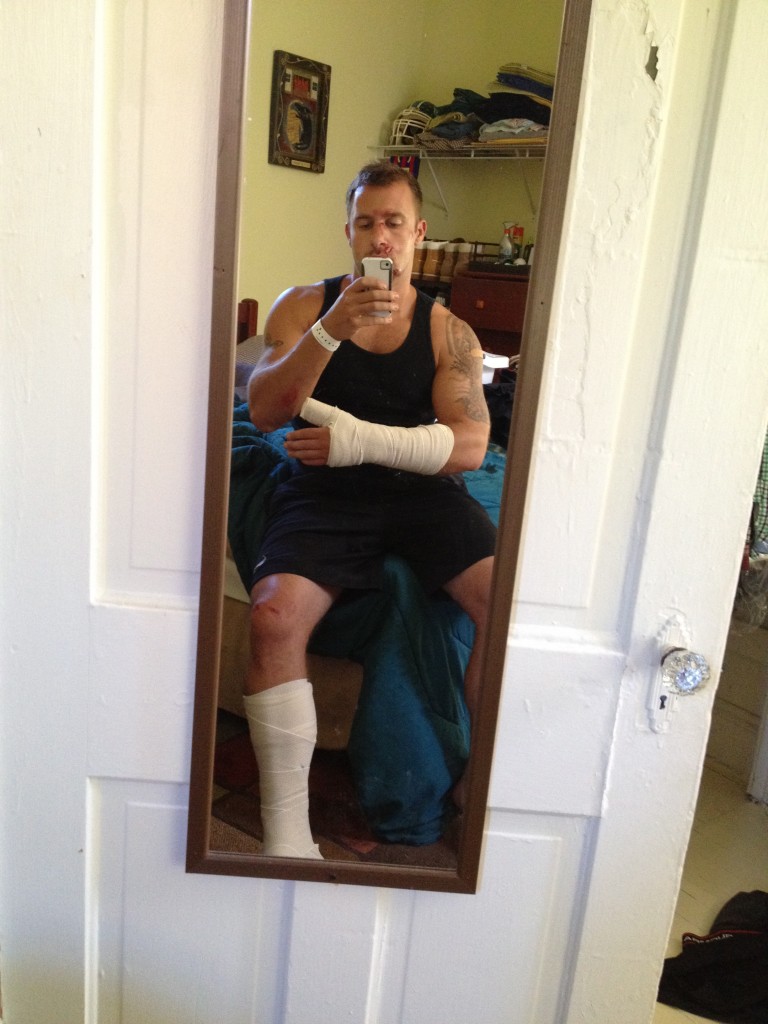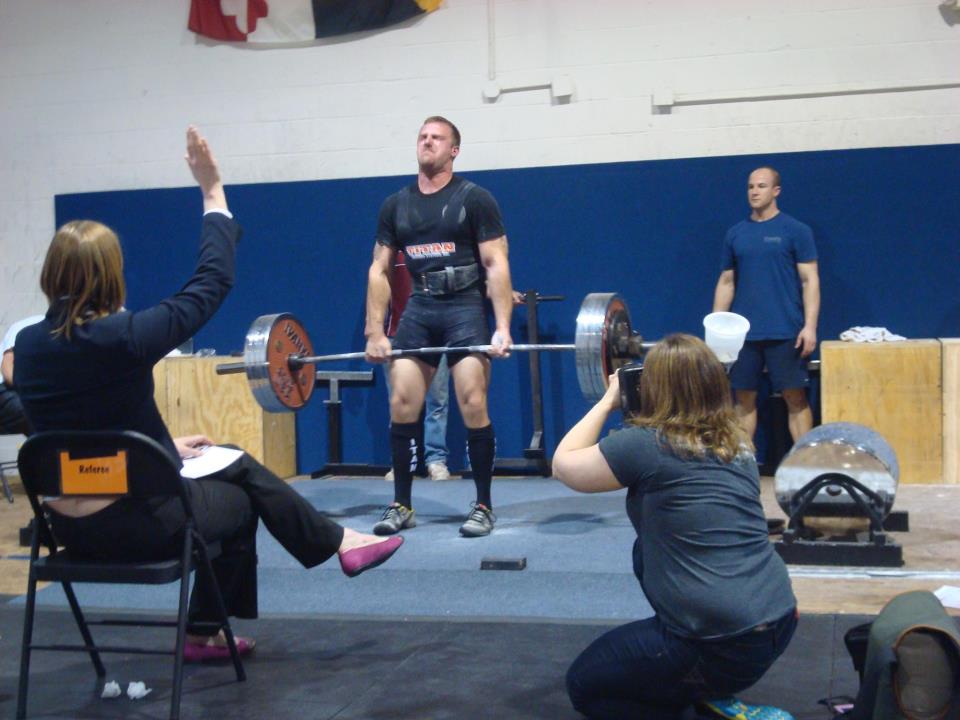What if I told you fitness could save your life? What if I told you health could kill you? Would you believe me? You don’t have to if you don’t want to. But if I were you I’d believe Teddy. (That’s him over there, to the right.) Because fitness—not health—might be the only reason he’s [...]
 What if I told you fitness could save your life?
What if I told you fitness could save your life?
What if I told you health could kill you?
Would you believe me?
You don’t have to if you don’t want to.
But if I were you I’d believe Teddy. (That’s him over there, to the right.)
Because fitness—not health—might be the only reason he’s alive.
What you need to know about fitness and health
I write about fitness. At least, I think I write about fitness. But I’m going to be honest: I’m not sure I know what fitness is anymore.
I know that mainstream fitness is a joke. I mean, it has to be. Right? How else does the majority of the population end up with metabolic diseases?
But there’s something interesting here: I don’t train to prevent metabolic disease. Same goes for most athletes I know. So how does this work? How do I train for and write about fitness but not give care to metabolic disease?
That’s an easy one.
Because fitness isn’t health.
Fitness—or whatever most people perceive it to be—is dead. It’s puzzle of health, athletics, and some kind of pseudo personal-self development soup. With CrossFit branding its athletes as the “fittest on earth,” it just adds to the fuckery. No one knows what health or fitness is anymore.
Do you?
Why fitness isn’t health
Fitness is the ability to do a task. End of story. There are many tasks out there, which means there are many types of fitness. There’s no “One Fitness” that was born from the fires of Mount Doom to rule them all.
There’s a unique fitness for tricking. There’s a unique fitness for powerlifting. There’s a unique fitness for Olympic weightlifting. There’s even a unique fitness for *gasp* CrossFit!
Athletes that chase fitness usually end up sacrificing health at times. There’s a difference between the absence of disease and increasing sports performance.
Loading the spine with 315 pounds says nothing about the interplay of organs or the absence of disease, both of which are common definitions of “health.” And considering the demands of modernized civilization rarely extend beyond carrying five pounds worth of groceries from the car to the kitchen, I question the “need” of barbell training.
The idea of hormesis is better for “health.” Hormesis is developing yourself just enough to protect from death. Just enough. You exercise just enough to make sure you won’t die from an exercise related disease. You strength train just enough to make sure you won’t crack your hip after slipping on soap in the tub.
The kicker is that most mainstream “fitness” goers don’t want “health.” They think they do, but that’s only because they don’t know the difference between health and fitness.
 They want low body fat. They want muscle tone. They want cosmetic enhancement. This motivation has been around for a long time too. It’s why people used stomach fat jiggling belts.
They want low body fat. They want muscle tone. They want cosmetic enhancement. This motivation has been around for a long time too. It’s why people used stomach fat jiggling belts.
Yet none of the above—low body fat, muscle tone—are markers of being disease free.
So with this in mind, mainstream fitness goers should train more like professional athletes to get the results they want. Their conception of “health” is actually the idea of being bigger, faster, and stronger. This is shaped by athletics, not the absence of disease. Yet mainstream fitness methods are rooted in “health,” not athletics.
There’s a reason most of us in fitness tell everyone to train like an athlete.
Do you train like an athlete?
Forego health for athletic fitness
Let’s face it: We aren’t cavemen. We are people living in an industrialized world. The pursuit of fitness—for athletes, enthusiasts, and just about everyone—is rarely about health.
This is why I tell skinny-fat ectomorphs to embrace vanity. This is why athletes train through pain. This is why we load the spine even though we only need to carry groceries.
And while neither of these things epitomize health, they might just save your life.
Things change inside when you face your maker under a barbell. I’m reminded by a passage out of Mark Rippetoe’s Strong Enough:
Strong people are harder to kill than weak people, and more useful in general.
What does this mean though?
What exactly is being harder to kill?
Maybe we should ask Teddy.
I think Teddy will know.
Teddy and I interned together in college. We trained in the same weight room at times, but it was never solely about health. Teddy’s powerlifting career is evidence for that.
But the mentality Teddy took towards training did something for him that training for “health” could never have done: it saved his life.
I’ll let him tell you the story.
HOW HEALTH CAN KILL YOU
Teddy: For me, training started when I was young. Some of my most vivid memories as a kid are from sports.
As a high school football player, I trained year round. I feel in love with everything: sprinting, stair running, and any other physical challenge I could swallow.
Unfortunately, a shoulder injury and one too many college parties derailed my playing days. But I still loved training and I wanted my life to revolve around it, so I started powerlifting. My best total came in March 2011 at USAPL Raw Maryland with a 455 squat / 335 Bench / 545 Deadlift at 214 lbs.
But I didn’t really train like a powerlifter. I trained like an athlete. I used sub-maximal weights, typically only going above 80% once every two months or so. I did a lot of sprinting, jumping, sled work, and strongman exercises. (Fasted cardio, cooking wholesome foods, and staying active kept my physique in check.)
On an idle Monday, I was biking to physical therapy school. It was early. I was half asleep. TOOL was soothing my psyche through my ear buds as I traversed a new, unfamiliar route.
I crossed an intersection blindly, but only because there weren’t any signs to tell me otherwise. A car going 20-30 mph T boned me. I saw it at a glance, but it was too late.
After the impact, I jumped up and stumbled to the sidewalk. Although disoriented, I was surprised I could even walk. But I stayed there, awaiting an ambulance.
 I wasn’t wearing a helmet. I was lucky to be alive, all things considered. My orthopedist told me I was one of his luckiest patients. My list of injuries wasn’t exactly short though:
I wasn’t wearing a helmet. I was lucky to be alive, all things considered. My orthopedist told me I was one of his luckiest patients. My list of injuries wasn’t exactly short though:
- Meniscus fraying
- Sprained ACL
- Sprained MCL
- Severely sprained foot
- Torn ligaments in my right hand
- Broken nose
- Facial lacerations
- Bruised ribs
- Strained rotator cuff
- Bone bruising
The ortho’s special tests hinted to a torn ACL and MCL in addition to broken bones. But if you gander at the list above you’ll notice no tears in the knee or no broken bones in the leg.
I have no doubt that making it out alive (and without many broken bones) is credit to strength training. It made me a warrior. Two days before the accident, I squatted 405×5 on my quest to my 500lb January goal.
Imagine I hadn’t lifted weights aggressively. Imagine I trained for “health,” and walked a bit here and there for my exercise. Imagine I had no consideration for muscle mass.
I wouldn’t even be alive, let alone getting compliments from the EMT for damaging the vehicle with my helpless carcass.
You often hear of people questioning pseudo-obsessive training behaviors.
“Do you need to go to the gym that much?”
“Why do you care about muscles?”
“Why do you count calories? Are you an obsessive freak?”
“Why do you care about what you eat so much?”
Those things dig at you sometimes. It’s currently “cool” to be lackadaisical and approach training less seriously. But the thousands of hours I spent sweating in the gym training my strength, power, and mobility and the countless meals I prepared in advanced to flush my body with the correct nutrients was all worth it. Because without all of that—what many people would actually call “unhealthy” behaviors—I probably wouldn’t be here.
Funny how that works out.
Isn’t it?
+++++
Those that trick with no formal gymnastics and martial arts training and with nothing more than a bed of grass at their disposal are called backyard tricksters. For the majority of my tricking career, I was a backyard trickster. This gave me an athletic mentality. I had an athletic outlet.
I’m partially inclined to start a new movement: be a backyard athlete. You don’t need to play a professional sport. You don’t need immense training. Just be an athlete. Let it seep into your soul. Let it affect how you carry yourself.
This relationship between health, fitness, and athletics is funky. I blasted this question to my social media platforms: “Is fitness the same thing as health?” No one mentioned “being harder to kill” as a characteristic of either fitness or health.
What do you think?
Are you an athlete?
Does your training make you harder to kill?

